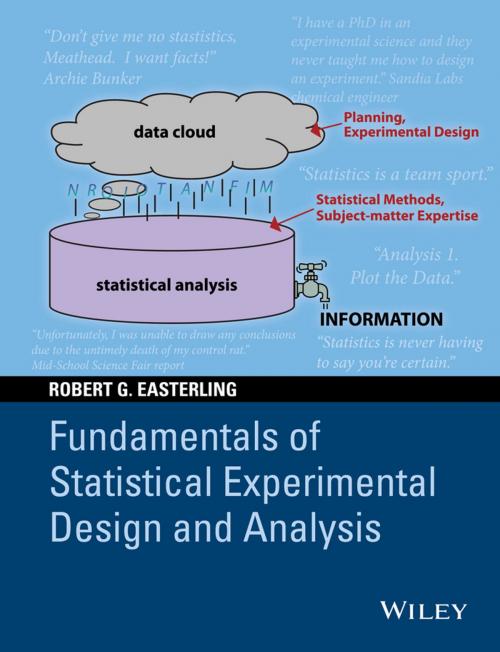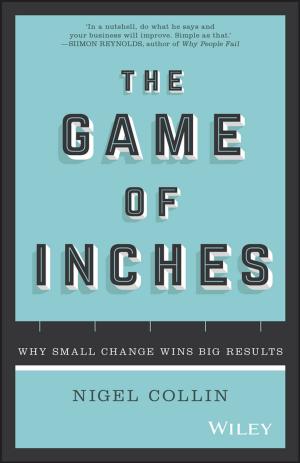Fundamentals of Statistical Experimental Design and Analysis
Nonfiction, Science & Nature, Mathematics, Statistics| Author: | Robert G. Easterling | ISBN: | 9781118954645 |
| Publisher: | Wiley | Publication: | August 3, 2015 |
| Imprint: | Wiley | Language: | English |
| Author: | Robert G. Easterling |
| ISBN: | 9781118954645 |
| Publisher: | Wiley |
| Publication: | August 3, 2015 |
| Imprint: | Wiley |
| Language: | English |
Professionals in all areas – business; government; the physical, life, and social sciences; engineering; medicine, etc. – benefit from using statistical experimental design to better understand their worlds and then use that understanding to improve the products, processes, and programs they are responsible for. This book aims to provide the practitioners of tomorrow with a memorable, easy to read, engaging guide to statistics and experimental design.
This book uses examples, drawn from a variety of established texts, and embeds them in a business or scientific context, seasoned with a dash of humor, to emphasize the issues and ideas that led to the experiment and the what-do-we-do-next? steps after the experiment. Graphical data displays are emphasized as means of discovery and communication and formulas are minimized, with a focus on interpreting the results that software produce. The role of subject-matter knowledge, and passion, is also illustrated. The examples do not require specialized knowledge, and the lessons they contain are transferrable to other contexts.
Fundamentals of Statistical Experimental Design and Analysis introduces the basic elements of an experimental design, and the basic concepts underlying statistical analyses. Subsequent chapters address the following families of experimental designs:
- Completely Randomized designs, with single or multiple treatment factors, quantitative or qualitative
- Randomized Block designs
- Latin Square designs
- Split-Unit designs
- Repeated Measures designs
- Robust designs
- Optimal designs
Written in an accessible, student-friendly style, this book is suitable for a general audience and particularly for those professionals seeking to improve and apply their understanding of experimental design.
Professionals in all areas – business; government; the physical, life, and social sciences; engineering; medicine, etc. – benefit from using statistical experimental design to better understand their worlds and then use that understanding to improve the products, processes, and programs they are responsible for. This book aims to provide the practitioners of tomorrow with a memorable, easy to read, engaging guide to statistics and experimental design.
This book uses examples, drawn from a variety of established texts, and embeds them in a business or scientific context, seasoned with a dash of humor, to emphasize the issues and ideas that led to the experiment and the what-do-we-do-next? steps after the experiment. Graphical data displays are emphasized as means of discovery and communication and formulas are minimized, with a focus on interpreting the results that software produce. The role of subject-matter knowledge, and passion, is also illustrated. The examples do not require specialized knowledge, and the lessons they contain are transferrable to other contexts.
Fundamentals of Statistical Experimental Design and Analysis introduces the basic elements of an experimental design, and the basic concepts underlying statistical analyses. Subsequent chapters address the following families of experimental designs:
- Completely Randomized designs, with single or multiple treatment factors, quantitative or qualitative
- Randomized Block designs
- Latin Square designs
- Split-Unit designs
- Repeated Measures designs
- Robust designs
- Optimal designs
Written in an accessible, student-friendly style, this book is suitable for a general audience and particularly for those professionals seeking to improve and apply their understanding of experimental design.















